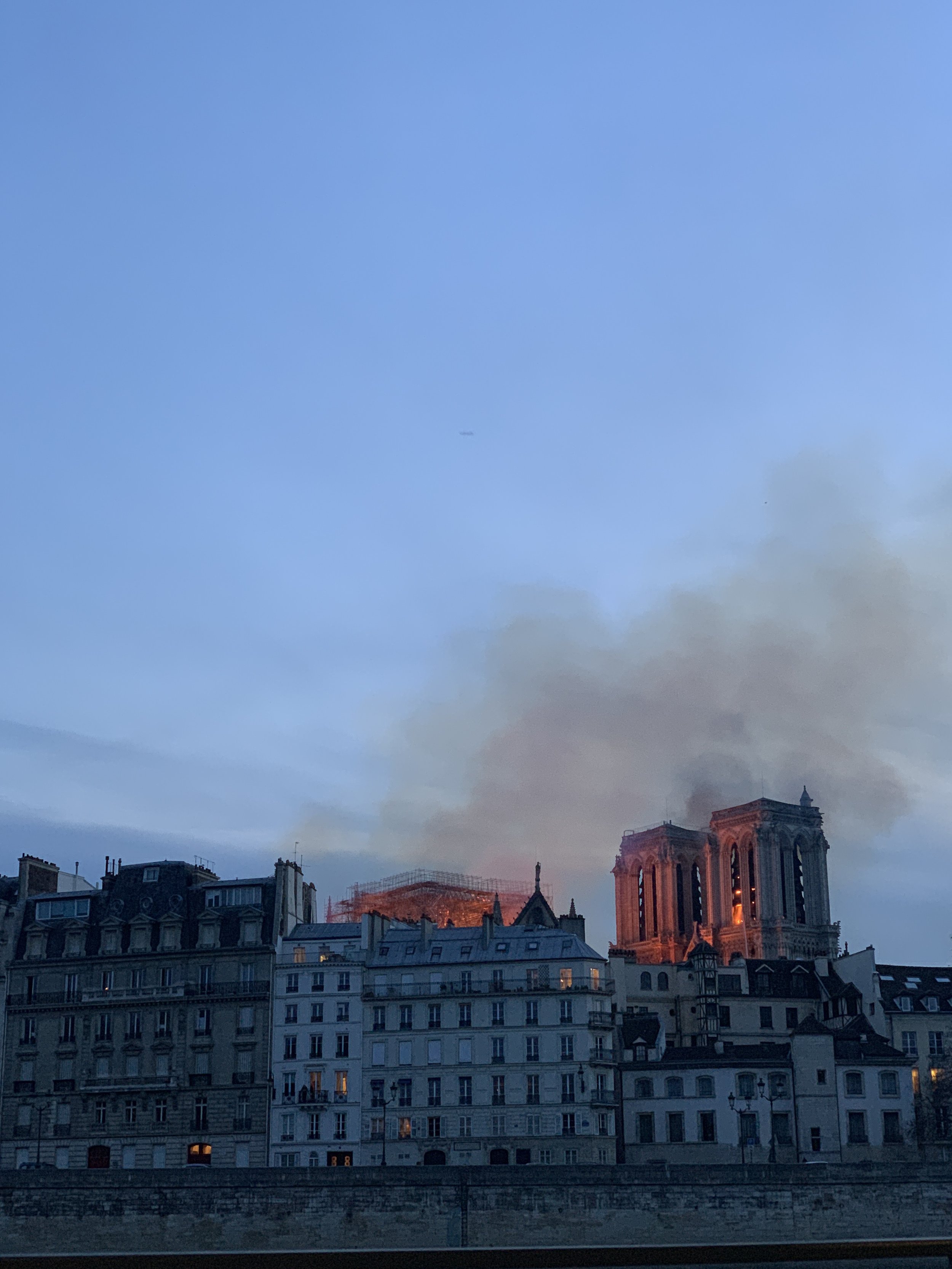I shared some thoughts with CNN Travel about why the world loves Paris so much and why you should be traveling here right now.
See below or check out the original article by Channon Hodges on CNN.
“When fire consumed Paris's Gothic cathedral of Notre Dame, the world watched in horror, with many expressing their love and support for a city that seems frequently beset by heartache.
There seems to be something about Paris that exerts a hold over the global imagination, even for those who have only ever daydreamed about walking next to the Seine, lunching on the Left Bank or watching the twinkling lights of the Eiffel Tower.
And though it has endured terrible events in the past few years, the city itself seems resilient to such tragedies, rising time and again to claim its position as the world's capital of romance.
The city has obvious allure as a travel destination thanks to landmarks like Notre Dame, world-class art museums such as the Louvre and a legendary dining scene, but there seems to be something else that ignites international affection.
"You would be hard-pressed to find anyone worldwide who hasn't seen a film, read a book, listened to a song in which Paris featured heavily -- let alone seen Parisian fashion and or eaten French cuisine," says Alizée Moreau, who was raised in Paris.
"Unless they are part of a remote community, they will have not only seen images of Paris, but also 'experienced' its culture, even if they haven't visited in person. It is part of our common heritage and our shared imagination."
That popularity has persisted despite the city's recent troubles. Over the past few months its been besieged by rioting "yellow shirt" anti-government protesters. And in 2015 it was shaken by two deadly terror attacks.
Resilience and love
While tourism may have fluctuated in the wake of these events, it has remained relatively consistent. A recent study on the world's most visited cities ranked the city number six on the global list, with nearly 16.9 million arrivals in 2018.
Among the city's global fan base, tragedy seems to strengthen affection.
In the aftermath of the November 2015 attacks on Paris's Bataclan concert hall, Facebook implemented its temporary profile picture application for the first time on a major scale, allowing users worldwide to filter images with the red, white and blue of the French flag in solidarity.
"So 2015 was a very hard year for the whole industry in Paris and France," says Stéphanie Boutet-Fajol, CEO of French tour company Sacre-Bleu Paris.
"However, tourists and especially Americans are resilient and the love for Paris is so strong that they finally came back. Hotels were the most impacted but it ended with something good because people perfected their service."
American food journalist Catherine Down, who has lived in Paris for six years, also felt the impact.
"I used to work in tourism. I used to give food tours. After the terrorist attacks, the company I was working for lost €15,000 [$16,928.00] overnight," she says.
Down said after the 2015 terror attacks she'd had articles canceled because editors told her "people aren't traveling to Paris."
But Down also acknowledges that the city will always be a popular destination -- and assures visitors they should still visit.
"Even though the perception of someone watching the news from far away is that this is an unsafe place to be, or there's all this chaos, for the most part it's still life as usual," she tells CNN Travel.
The Notre Dame fire is unlikely to deter visitors in the same way as other tragic events; indeed, as the city starts to rebuild, it could well attract more.
"I think that this latest tragedy will possibly attract more as people realize the fragility of these historic places," says Heidi Evans, a tour guide who runs the Women of Paris walking tours -- which spotlight women's role in Parisian history.
"If the crowds around Notre Dame today are anything to go by then seems like everyone wants a chance to see the wounded Lady," she adds.
However, the fire is still likely to have an affect on morale -- both good and bad.
As the fire burned on Monday, for many, it felt like a physical affront, says Down.
"Part of the role of a cathedral is to feel the presence of the sublime. People humanize it almost -- it's literally 'Notre Dame,' 'Our Lady,'" she says.
The cathedral is one of the City of Light's most famous symbols, attracting an estimated 13 million visitors a year.
Predating the Eiffel Tower by 500 years, it's seen upheaval and destruction during the French Revolution and survived the German occupation of the city during World War II. It was immortalized in literature in Victor Hugo's "The Hunchback of Notre-Dame."
"Watching Notre Dame burn was a huge shock," says Moreau. "It had never occurred to me that this wonderful, medieval piece of my childhood -- the center of Paris, the garden behind it where my grandma used to take me on my tricycle, the blossoming trees next to it, the pale golden stone, the view from the top of the tower -- could one day be gone.
"They have been there for centuries and I thought they would always be there. It feels like a broken thread, a great collective loss."
